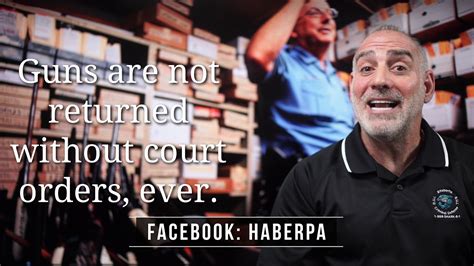How Do I Get My Gun Back From Police
Ronan Farrow
Apr 04, 2025 · 3 min read

Table of Contents
How Do I Get My Gun Back From the Police? A Step-by-Step Guide
Getting your firearm back from law enforcement can be a complex and frustrating process. The specific steps involved depend heavily on your location (state/province and even the specific jurisdiction), the reason your gun was seized, and local laws. This guide offers general advice, but it's crucial to consult with a legal professional familiar with firearms law in your area. They can provide tailored guidance based on your specific circumstances.
Understanding Why Your Gun Was Seized
Before navigating the retrieval process, understanding why your firearm was taken is vital. Common reasons include:
- Criminal Investigation: If your gun was involved in a crime or you were arrested, its return might be contingent on the outcome of the investigation and any charges filed.
- Violation of Law: Possession of a firearm might be unlawful in your jurisdiction, or you may have violated a specific regulation (e.g., improper storage, concealed carry permit violations).
- Mental Health Concerns: In some cases, firearms are confiscated due to concerns about the owner's mental health or fitness to possess a weapon.
- Domestic Violence: If domestic violence is involved, the return of the firearm might be subject to court orders and protective measures.
Steps to Reclaim Your Firearm
This is a general outline and may not apply in every situation. Always check your local laws and consult with an attorney.
1. Contact the Seizing Agency
The first step is to contact the specific police department, sheriff's office, or other agency that seized your firearm. Request information about the reason for seizure and the process for retrieving it. Obtain case numbers and contact details of the officers involved. Be polite and professional in all your interactions.
2. Gather Necessary Documentation
Depending on your situation, you might need to provide various documents, including:
- Proof of Ownership: This could include your purchase receipt, registration paperwork, or other documentation showing your legal ownership of the firearm.
- Identification: A valid government-issued ID (Driver's License, Passport, etc.).
- Firearms License/Permit: If required in your jurisdiction, you'll need to provide proof of a valid license or permit.
- Legal Counsel Documentation: If you've hired an attorney, provide documentation outlining their representation.
3. Understand the Legal Requirements
You'll likely need to meet specific legal requirements before your firearm will be returned. These might include:
- Completion of Investigation: If your gun was seized as part of an investigation, you'll have to wait until it's concluded.
- Court Order: You might need a court order to regain possession, especially if legal proceedings are involved.
- Background Check: You may be subjected to a new background check to ensure you still meet the legal requirements for firearm ownership.
4. The Retrieval Process
The process of retrieving your firearm will vary. You might need to:
- Visit the Agency: Go in person to pick up the firearm during designated hours.
- Appointment: Schedule an appointment for the return of your firearm.
- Third-Party Transfer: In certain cases, the agency may require you to retrieve the firearm through a licensed firearms dealer.
5. Follow Up and Documentation
After receiving your firearm, keep records of all communication, paperwork, and the date of return. This documentation could prove invaluable if any disputes arise later.
Important Considerations:
- Timeframes: The process can take weeks, months, or even longer, depending on the complexity of your case and the agency's workload.
- Fees: There might be fees associated with retrieving your firearm, such as storage fees or administrative costs.
- Legal Representation: This is strongly recommended, especially if legal issues are involved. An attorney can help you navigate the complexities of firearms law and ensure your rights are protected.
This information is for guidance only and does not constitute legal advice. Always consult with a qualified legal professional in your jurisdiction for advice tailored to your specific situation.
Featured Posts
Also read the following articles
| Article Title | Date |
|---|---|
| How Hard Is It To Install A Lift Kit | Apr 04, 2025 |
| How Far Do Bungee Cords Stretch | Apr 04, 2025 |
| How Does House Arrest Work In Pa | Apr 04, 2025 |
| How Does A Wise Person Resolve Conflict | Apr 04, 2025 |
| How Hard Is It To Get Into Chiropractic School | Apr 04, 2025 |
Latest Posts
-
How Has Softball Changed Over The Years
Apr 04, 2025
-
How Hard Is The Real Estate Exam In California
Apr 04, 2025
-
How Hard Is The Lsat Compared To The Mcat
Apr 04, 2025
-
How Hard Is The Florida General Contractor Test
Apr 04, 2025
-
How Hard Is It To Rebuild A Th350 Transmission
Apr 04, 2025
Thank you for visiting our website which covers about How Do I Get My Gun Back From Police . We hope the information provided has been useful to you. Feel free to contact us if you have any questions or need further assistance. See you next time and don't miss to bookmark.
